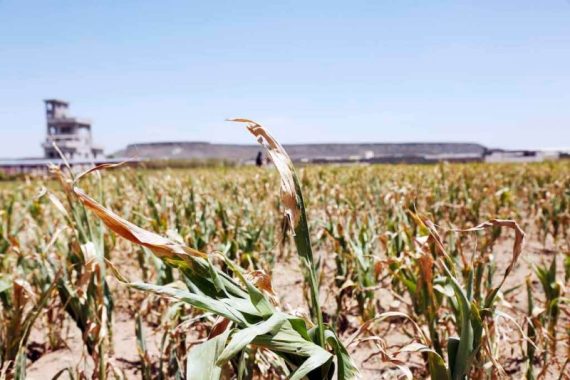I
n conflict zones around the world, water has become a weapon, leading to dire consequences for civilian populations. From Yemen to Ukraine to Libya, the deliberate targeting or indirect impact on water infrastructure has exacerbated humanitarian crises, highlighting the urgent need for innovative solutions to minimize civilian harm.
In Yemen, a country plagued by civil war since 2014, both state and non-state actors have targeted water infrastructure as part of their military strategy. The Houthis, backed by government forces, have engaged in a tug-of-war over control of water resources, leading to blockades and attacks on water supplies.
The resulting water shortages have contributed to food insecurity and disease outbreaks, disproportionately affecting women and children. Humanitarian organizations struggle to provide assistance amid ongoing conflict and logistical challenges, leaving millions in desperate need of aid.
Destruction of water infrastructure in Ukraine
Russia’s invasion of Ukraine has brought devastation to the country’s water infrastructure. The deliberate destruction of civilian infrastructure, including the Nova Kakhovka Dam, has led to displacement and water shortages for millions of people.
The interconnected nature of water and energy systems means that attacks on one system can have ripple effects on the other, further exacerbating the crisis. Despite international condemnation, Russia continues to target critical infrastructure, leaving civilians without access to clean water and sanitation.
Libya, torn apart by a decade of conflict, has also seen its water infrastructure targeted and destroyed. The collapse of dams and water systems in cities like Derna has led to catastrophic flooding and displacement. Different factions vie for control over water resources, leading to looting, sabotage, and threats that impact water availability for civilians. The Great Man-Made River Project, a vital water supply network, has become a battleground, further exacerbating the humanitarian crisis.
Devastating consequences for civilian populations
The weaponization of water has had devastating consequences for civilian populations in conflict zones. In addition to water shortages, communities face food insecurity, disease outbreaks, and displacement. Women and children are particularly vulnerable, with girls facing increased risks of violence and barriers to education. Humanitarian organizations struggle to provide assistance amid ongoing conflict and logistical challenges, leaving millions in desperate need of aid.
Addressing the weaponization of water requires innovative solutions and international cooperation. Investing in resilient water infrastructure, addressing climate change’s impact on water resources, and promoting conflict-sensitive development are essential steps. Additionally, enforcing existing international law and holding perpetrators accountable for their actions can help deter future attacks on water infrastructure. However, these efforts must be supported by sustained political will and financial resources to make a meaningful impact.
The weaponization of water in conflict zones represents a global crisis that demands urgent attention and action. From Yemen to Ukraine to Libya, civilians are bearing the brunt of this devastating tactic, facing water shortages, food insecurity, and disease outbreaks. Addressing the root causes of the crisis and investing in resilient water infrastructure are critical steps towards mitigating its impact and ensuring the well-being of affected populations.
Source: Wilson Center
Recommended





